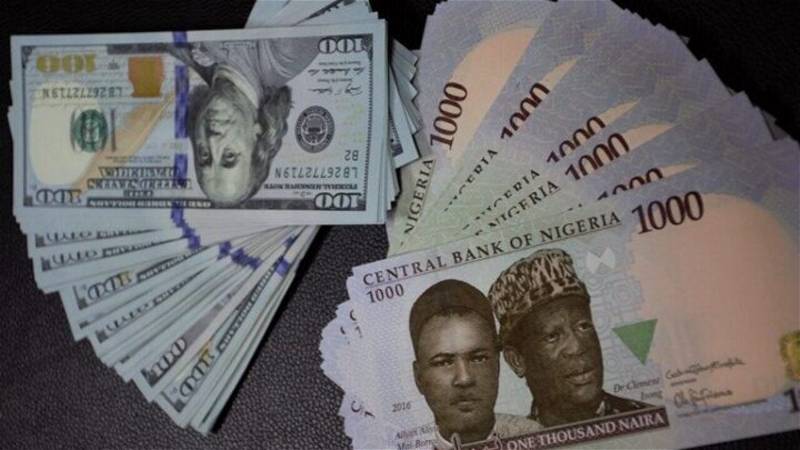The Naira-to-dollar exchange rate rose to N1,431/$, bringing the week to a close on a positive note.
According to data from the FMDQOTC, where the exchange rate is officially set, the official currency increased 1.52% at the close of business, continuing a 7-day rally.
The Naira has gained more than 12% in one week, indicating that the central bank’s aggressive policies, implemented since February, are beginning to bear fruit.
The exchange rate closed at N1,431/$1, the best rate since February 5th, when it was N1419.86/$1.
According to the FMDQ, the Naira reached an intra-day high of N1,468/$1 and a low of N1,301/$1, while the NAFEX rate is currently N1,381.35/$1.
Daily turnover was $199.7 million culminating in a total turnover of $1 billion this week alone suggesting that improved liquidity is now been experienced in the market.
Nigeria’s external reserve position is currently $34.3 billion and is expected to rise to $35 billion according to projections from the apex bank.
On the parallel market where the exchange rate trades unofficially, traders still quoted between N1400-N1480/$1 depending on who is buying or selling.
The UK Pounds also fell below N2000/£1 in the parallel market.
CBN Interventions paying off
The Central Bank of Nigeria’s (CBN) recent policies have played a pivotal role in the strengthening of the Naira against the dollar, a trend highlighted by the significant appreciation in its value over the past week.
The CBN’s strategic interventions in the foreign exchange market stand out among the measures that have contributed to this positive outcome.
Traders who spoke to Nairametrics suggested that the central bank was active in the official market during the week. According to one trader who knew the matter, the CBN likely sold over $50 million.
By increasing the supply of dollars, the apex bank is addressing the demand-supply mismatch that is perceived to have previously led to the Naira’s depreciation.
The CBN’s rigorous enforcement of foreign exchange regulations has curtailed speculative activities, contributing to exchange rate stability.
The recent strengthening of the Naira is a significant relief to the Central Bank of Nigeria (CBN), which had faced considerable scrutiny over the currency’s depreciation.
This scrutiny intensified with the introduction of the willing buyer, willing seller model, aimed at creating a more transparent and market-driven forex trading environment.
However, critics suggest this may have exacerbated the currency crisis, especially as Nigeria’s external reserves were not robust enough to support such a move. They also pointed to its impact on inflation.
Given the correlation between the two, the exchange rate’s impact on inflation is profound.
In Nigeria, where the economy is significantly import-dependent, a weaker Naira makes imported goods more expensive, fueling inflation.
The rise in the February inflation rate to 31.7%, coinciding with a period of notable depreciation of the Naira, underscores this dynamic.
A stronger Naira can help temper inflationary pressures by making imports less costly, contributing to overall price stability.
For most Nigerians, a stronger Naira signals potential economic recovery and stability, and the country might be on the verge of overcoming some of its economic challenges.


